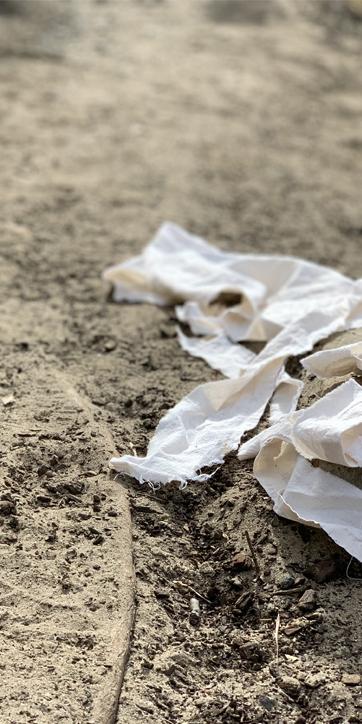Liturgy

Community Liturgy
In alignment with government guidelines relating to novel Coronavirus (COVID-19), there will not be any Community Liturgies until further advice.
However John XXIII College still continues to be a praying community, and the following links may be helpful.
- Daily prayer: https://www.pray.com.au
- Jesuits in Britain have released a daily audio 'Pray as you Stay' prayer series available here: https://www.pathwaystogod.org/resources/pray-you-stay?mc_cid=edcb0df26f&mc_eid=ab727939b6
- Livestream of Mass by the Archbishop – which will be streamed every Sunday at 11:00am
- Then later available via Youtube: http://www.perthcatholic.org.au/Our_Archdiocese-Archbishop-Videos.htm
In place of this week’s Friday Community Liturgy, a PowerPoint presentation of prayer and scripture can be found here.
SACRAMENT PROGRAM 2020
Do you have a child currently in Year 3, 4 or 6? The students in these classes will continue to be prepared to celebrate in their parishes the sacrament of Reconciliation, First Communion and the sacrament of Confirmation, however parish celebrations of sacraments are to be postponed.
Due to current circumstances, Archbishop Timothy Costelloe has released a statement outlining temporary changes to the Preparation and Celebration of Sacraments for School Aged Children in the Archdiocese of Perth in relation to Novel Coronavirus (COVID-19).
The Archbishop advises:
Celebrations of the Sacraments of Confirmation, Eucharist and Penance for the first time are by their very nature events which bring the faith community together in their local parish…
I commit the Archdiocese of Perth to the support of, and compliance with … government directives and the associated and instructive public health advice.
Given the risks associated with the spread of COVID-19, it is necessary to put in place measures that will protect the health and safety of the community.
I therefore direct that all celebrations of the Sacraments that were planned for 2020 be temporarily suspended. This temporary suspension will also apply to gatherings associated with these celebrations such as parent evenings and workshops.
At the end of the Sacrament Program units of work in Years 3, 4 and 6, students will receive from the College a certificate of completion. Parishes will require the certificate in order for the students to participate in parish celebrations of sacraments, once they have resumed. Further information is available from the website of the Perth Archdiocese: http://www.perthcatholic.org.au/COVID19.htm
Alternatively, contact Mary-Anne Lumley: mary-anne.lumley@cew.edu.au
GOOD NEWS for 5th Sunday in Lent
“I am the resurrection and the life.”
John 11:1-45
The reflection for this Sunday’s Gospel is part of a longer homily by Jesuit priest, Fr Richard Leonard. Fr Richard Leonard SJ is the Director of the Australian Catholic Office for Film and Broadcasting, is a member of the Australian Catholic Media Council and is author of Preaching to the Converted, Paulist Press, New York, 2006.
The plunging of an adult or an infant into the baptismal font three times is the most important moment in the ceremony and meant to be the most moving one as well. Most of us think that this action is associated with the Trinity. It is. But the more ancient association is with the three days Jesus lay in the tomb. This is one reason why the Church now encourages candidates for baptism to be fully immersed wherever practicable. The sprinkling of water over a catechumen’s head just doesn’t capture the drama which the ritual intends. But when we see a person take a breath, plunge under the water and come up for air three times, we can powerfully see the identification between Jesus’ time in the tomb and the person rising to new life in Christ.
The season of Lent has its origins in third century Egypt where there was a commemoration of Jesus’ forty days in the desert. In the fourth century these forty days are moved to their present location in the Church’s calendar as the final preparation time for baptismal candidates at Easter and by the fifth century these penitential and baptismal focuses came together as one season for all believers to observe. Even the word Lent, from the old English word Lencten meaning Spring, alerted Christians in the northern hemisphere that this season was linked to the waking of nature after the long sleep of winter. Lent is about waking up to see that light and life have come in Christ.
Over the centuries the Church has tended to place more emphasis on penance than baptism. The Second Vatican Council, however, went back to the most ancient sources of this season, re-established the Rite of Christian Initiation of Adults and encouraged us to see the link between our acts of penance and our ongoing conversion to Christ expressed in the baptismal promises made for us many years before.
On this last Sunday in Lent Lazarus is given to us to help us think about the tombs in which we lie hidden and the life to which we are called. The bad spirit seduces most of us into having some form of secretive life. It might be a secret we can’t tell, a sin we can’t confess or a memory we want to bury. At its worst it can be a lifestyle or a pattern of unethical behaviour we have divorced from the rest of our lives. We may even con ourselves into believing that all of this is normal and ‘not so bad’.
These tombs often look similar. They seem small on the surface, but as we get away with our secrets we bury ourselves in them more deeply. We jealously guard the entrance, displacing energy to defend our tombs and we’re ashamed if anyone rolls away the stone and sees the mess inside.
But this Sunday Jesus stands at the entrance of our tombs and calls us out of them. We’re asked to face down the bad spirits that keep us locked in secrecy, to move away from shame, embrace repentance, recognise the price to be paid for being true to what’s best in ourselves and we’re invited to know the light and life of Christ’s healing and forgiveness.
No one can pretend that this journey is easy, but it’s what Lent is all about: the journey from the tomb of our own particular deaths, through penance to the new life of Easter. May we see the Lord stand at our tomb and gently call us by name, ‘Come forth’. And at His word may we be unbound and let go free.
© Fr Richard Lennard SJ


